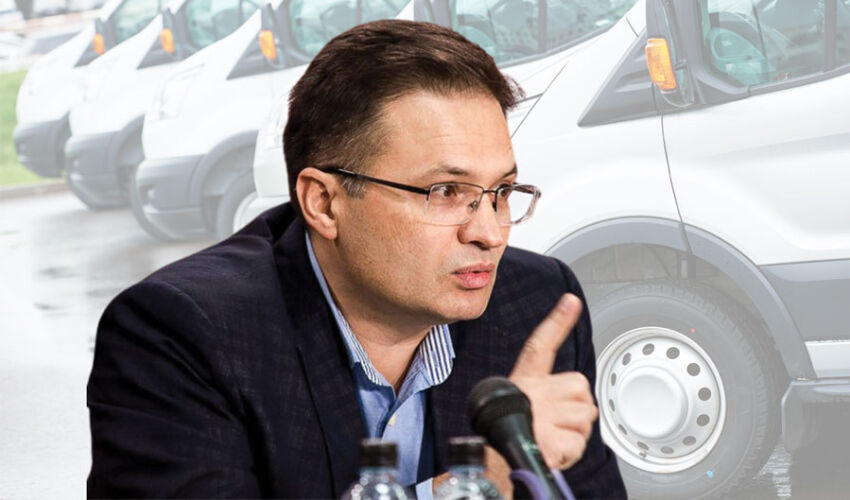
Oleg Alexa
In June, APOTA sent a written appeal to the government, and copies of the letter were given to media outlets. The Association made a similar appeal to the authorities in March this year, and protests on the central square of the capital have been taking place for the last few years. It is obvious that the problems are not solved by the authorities, and therefore the transport workers are forced to report them again and again.
The transportation sector is under the jurisdiction of the Ministry of Infrastructure and Regional Development. Passenger transportation operators have a lot of questions to the ministry, three of them are the main ones. They are outlined by the chairman of the APOTA council, Oleg Aleksa:
– Lack of methodology for calculating tariffs for regular passenger transportation by road;
– facilitation by some officials of illegal actions and corruption schemes through the so-called e-GPS and e-ticket systems;
– imposing impossible and disproportionate conditions on carriers with regard to the transportation of people with disabilities.
Oleg Aleksa said that the listed issues from the side of transport workers were raised back in March this year, but the Ministry of Infrastructure and Regional Development only simulated the discussion without taking concrete decisions. “We believe that it makes no sense to continue discussions with the ministry, we don’t want to talk to them anymore, we need concrete solutions. The methodology for calculating the tariff should be approved by the government; the draft government decree regarding e-GPS (location positioning) and e-tickets should be withdrawn; also the ideas of the National Road Transport Agency regarding transportation of people with disabilities should be withdrawn.”
Carriers argue that the attempt to introduce e-GPS and e-ticket systems is in the interests of a certain interested company, which will not solve real problems but will increase costs for transport operators.
APOTA says that it has repeatedly drawn the attention of the ministry: the proposed e-GPS in combination with the e-ticket system contradicts the European practice, there are no similar rules to the presence of too detailed data in the electronic ticket in any EU country. The e-ticket system for Moldova was designed to force carriers to purchase one specific model of cash registers. And the Ministry intentionally promotes some technical requirements for the content of the ticket.
Oleg Alexa explained with concrete examples the absurdity of excessive requirements for such an electronic ticket. “They want that when a passenger boards, for example, in the village of Recha, that it should be indicated on the ticket that he boarded exactly in Recha. And we ask the question – what is the point of this? If a vehicle has route authorization, you can see what settlements it passes through, and you can see at what time it is on schedule in each settlement”.
Carriers remind that even now the tax service can easily check the data: the time indicated on the ticket, the code of the settlement and the schedule approved by the ANTA agency allow to control the route accurately. Carriers are convinced that the whole story with the innovations is only to force them to buy cash registers from a company close to certain circles.
The next problem: ANTA’s requirement to adapt passenger vehicles to the needs of persons with disabilities. Carriers emphasize that they are not against the idea itself, but disagree with the way it is implemented, which requires huge costs for transportation companies and offers no real solutions. How to work when there are more costs than revenues?
“ANTA realizes that we will not be able to meet all the requirements. Controllers will go to the routes and this will be a new reason to collect fines from carriers,” states Oleg Aleksa.

